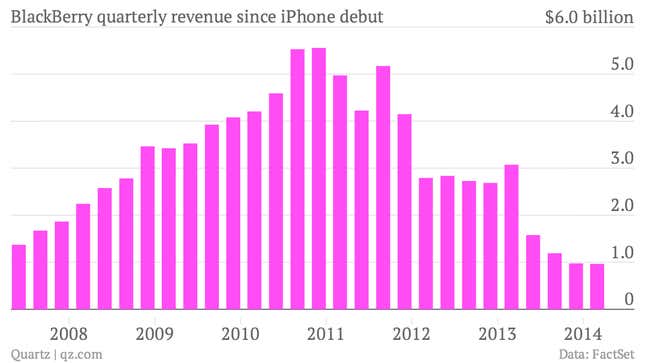
BlackBerry is still stirring—sort of.
Yesterday in New York, the company hosted a mobile security summit and announced an acquisition of a German provider of “high-security voice and data encryption and anti-eavesdropping solutions” for governments and large corporations.
Will BlackBerry, with its smartphone business largely ruined by competition from Apple and Android, recover in its new life as an enterprise software and security provider?
“Snowden takes over for Alicia Keys,” RBC analyst Mark Sue jokes in the title of his research report today—referring to BlackBerry’s renewed focus on security and its short-lived relationship with the singer Keys, who once served as the company’s “global creative director.”
The new focus likely won’t restore BlackBerry to its former glory, but it may at least provide a path to profitability, or maybe someday, an acquisition.
As BlackBerry’s new CEO John Chen gives it his best, it’s worth taking another look at the company’s dramatic rise and fall—from less than $1.5 billion in quarterly revenue when the iPhone launched in the summer of 2007, up to $5.5 billion in late 2010, and back down to about $1 billion in its most recent quarter.



